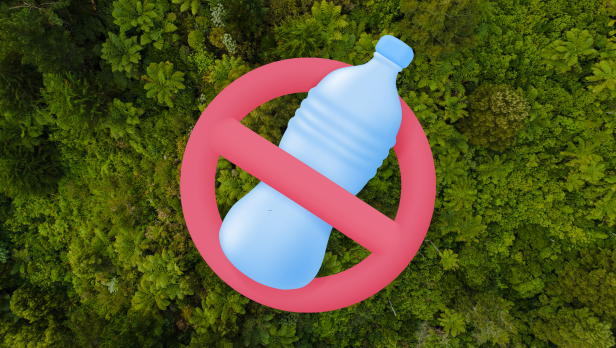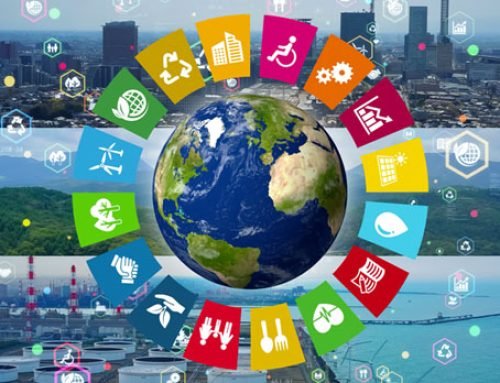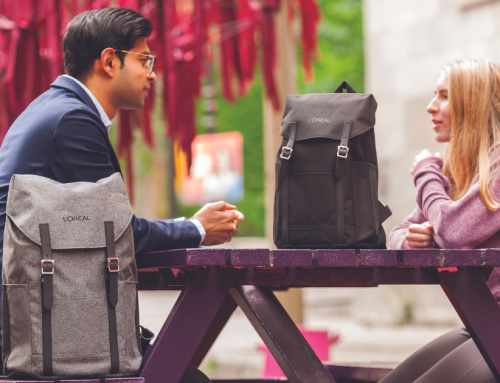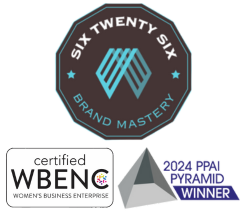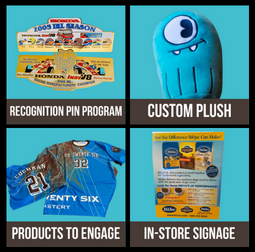Some promo suppliers that sell the single-use bottles, however, say their product has been unfairly scapegoated. It brings to the fore a broader discussion centered on sustainability in promo.

Massachusetts Gov. Maura Healey has signed an executive order that will ban commonwealth agencies from purchasing single-use plastic bottles, making the Bay State the first in the nation to restrict that procurement practice among its agencies.
The order, one of several recent actions targeting single-use plastic bottles, has implications for the promotional products industry.
At its most basic, the restriction means that promo distributors and others will not be able to sell single-use plastic bottles to Massachusetts state agencies. Single-use plastic water bottles with custom-printed labels are found everywhere from conferences and trade shows, to hotels and the headquarters of various organizations.
On the other hand, the crackdown on single-use plastic bottles could help fuel sales of reusable branded drinkware in Massachusetts – with state agencies directly and by further stoking a sentiment in which other end-buyers may be encouraged to invest in such products to be in line with the environmental protection ethos that’s motivating the ban.
Regardless, it all ties into broader narratives and initiatives involving sustainability and single-use plastic bottles, products made from recycled plastics, and reusable drinkware that have been playing out in promo.

GOAL 1: No Poverty
Ending poverty goes hand in hand with promoting sustainability. For example, poverty and inequality often exacerbate environmental challenges, with poorer communities frequently experiencing inadequate access to clean water, sanitation and healthy living conditions.
How Promo Can Help:
Consider organizing a donation drive to gather crucial items for underserved communities. Last year, for example, the Michigan Promotional Professionals Association (MiPPA) held a coat drive during its annual TOM show.
‘Chart a Better Path Forward’
Healey announced the ban at the Clinton Global Initiative on Monday, Sept. 18. Following her Thursday signing, the prohibition took effect immediately. Healey said she issued the order to help protect the environment from plastic pollution.
“Plastic production and plastic waste are among the leading threats to our oceans, our climate and environmental justice,” Healey said. “In government, we have an obligation to stop contributing to this damage and chart a better path forward. So, we are proud to become the first state to adopt a procurement ban on single-use plastic bottles.”

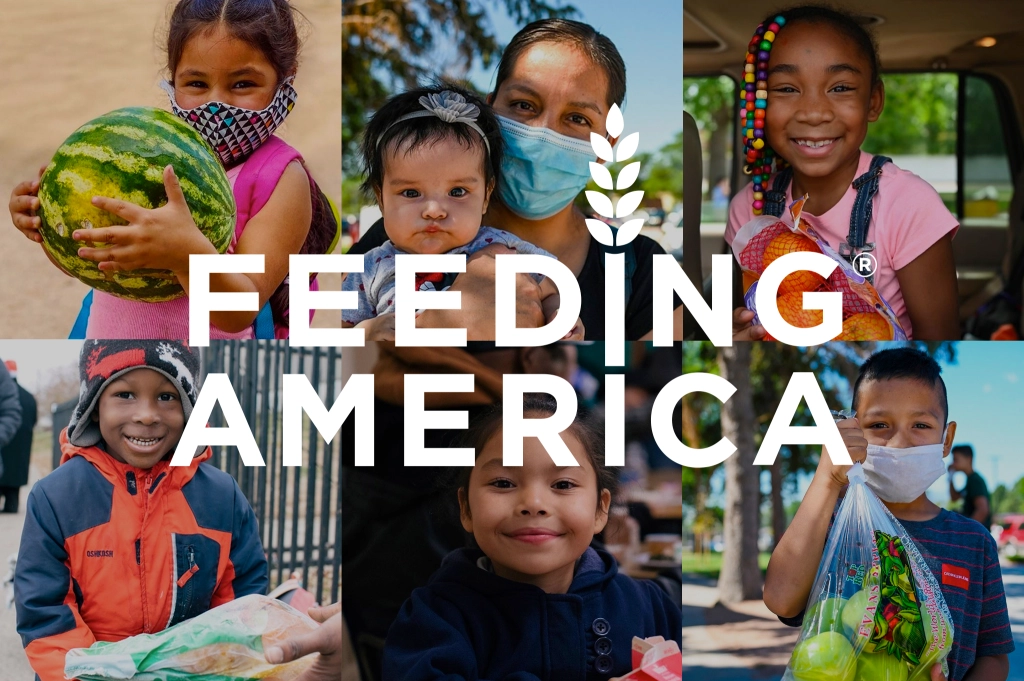
GOAL 2: Zero Hunger
This goal is about achieving food security and improved nutrition as well as promoting sustainable agriculture. The U.N. notes that one in 10 people worldwide is suffering from hunger and nearly one in three lacks regular access to adequate food.
How Promo Can Help:
Look for products that offer a giveback to organizations like Feeding America, or make a donation to your local food bank. (Remember that hunger is year-round – not just during the holiday season.)
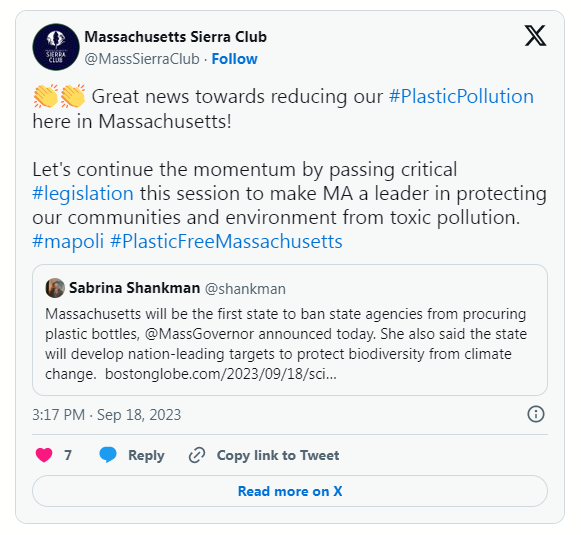
Certain environmentalists, including the Sierra Club of Massachusetts, lauded the ban, calling it “great news toward reducing our plastic pollution.” The Sierra Club has asserted that the carbon footprint of bottled water is 11 to 31 times greater than that of tap water, while stating that plastic bottles do not biodegrade and can remain in the environment for 1,000 years.

GOAL 3: Good Health and Well-Being
Secure healthy living and well-being, as well as access to healthcare, for people at any age of life.
How Promo Can Help:
Healthcare is one of the biggest markets in promo. Support front-line workers of all kinds with thank-you gifts and branded merch.
Bag & Bottle Bans
Within the last decade, restrictions on single-use plastic bags have proliferated around the United States. Cities and towns have implemented localized bans, and 10 states plus the District of Columbia now have restrictions on the bags. Some promo distributors report that the regulations have helped stimulate sales of reusable branded alternatives, like tote bags.
Single-use plastic bottles haven’t been in the legislative crosshairs as much, but as Healey’s order indicates, the focus on them may be increasing.
More than 20 municipalities in Massachusetts now have put some type of restrictions on single-use plastic bottles, according to CBS Boston. Concord, MA, for instance, was the first city in the country to ban the sale of disposable plastic bottles – a step taken a decade ago.
To be clear, there’s no statewide ban on single-use plastic bottles in Massachusetts. Retail stores in municipalities without legislation restricting single-use plastic bottles can continue to sell them. Even so, consumers do pay a 5-cent fee for each bottle purchased in the state, but can get a refund by recycling them at bottle/can redemption centers. Healey’s ban applies particularly to the procurement practices of state agencies.
Elsewhere, Los Angeles International Airport (LAX) has banned the sale of single-use plastic water bottles – a restriction that took effect on June 30. “We encourage our guests to help us reach our goal of eliminating plastic waste at the airport by bringing a reusable water bottle and filling it up at one of our many hydration stations,” Los Angeles World Airports CEO Justin Erbacci said at the time.
On a federal level, the secretary of the U.S. Department of the Interior, Deb Haaland, issued an order last year aimed at phasing out single-use plastic products on Department-managed lands by 2032. Single-use plastic bottles are part of that. Among other things, the Interior Department is responsible for the management and conservation of most federal lands and natural resources.
The order “will ensure that the Department’s sustainability plans include bold action on phasing out single-use plastic products as we seek to protect our natural environment and the communities around them,” Haaland said.
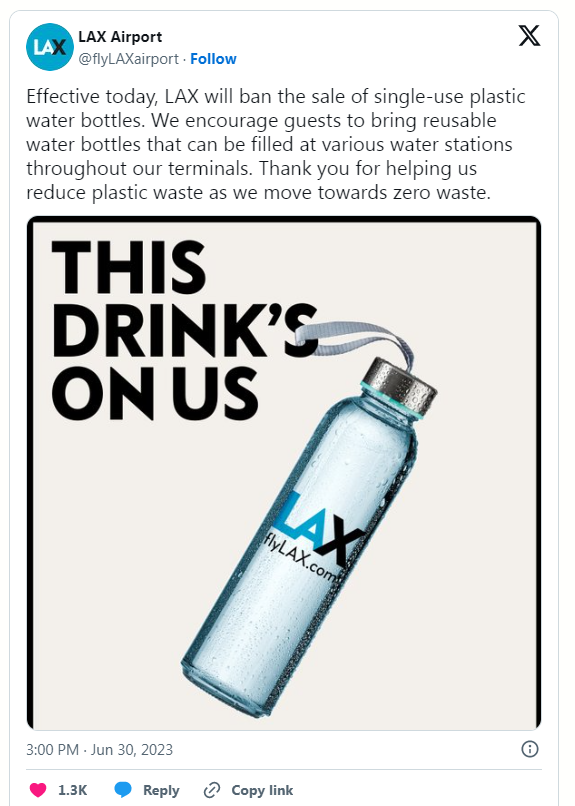

GOAL 4: Quality Education
Everyone deserves inclusive and appropriate education. This goal encompasses everything from ensuring that all girls and boys have access to quality early childhood care to increasing literacy and numeracy in children and adults.
How Promo Can Help:
Assemble backpacks full of school supplies for low-income students in the U.S., or make a donation toward educational efforts abroad. Last year, for example, Top 40 supplier SanMar (asi/84863) invested in the Mhotivo School in Choloma, a region of Honduras where the firm has large manufacturing operations.

Custom-Label Bottle Water Suppliers Respond
Still, there’s another side of the coin to consider: Promo suppliers that sell bottled water think their products have been unfairly pigeonholed and scapegoated.
Speaking to ASI Media, they called the forthcoming ban on state agencies procuring single-use plastic bottles in Massachusetts – and other similar initiatives – misguided. They expressed concern that other states, towns and various entities may seize on the idea and run with it.
“For sure it would have an impact on us if more and more states or other places start to ban bottled water in this way,” said Doug Wolters, general manager of the Water Depot Inc. (asi/95385), a Missouri-based supplier that sells custom-label bottled water.
Other suppliers pointed out potential safety issues stemming from the Massachusetts ban.
“I hope Massachusetts never has a natural disaster or a tap water crisis as Flint, Michigan did,” said Mark Sorokwasz, president of Texas-headquartered Alexa Springs (asi/34037), another supplier that sells custom-label bottled water. “The first thing they do is send in bottled water.”
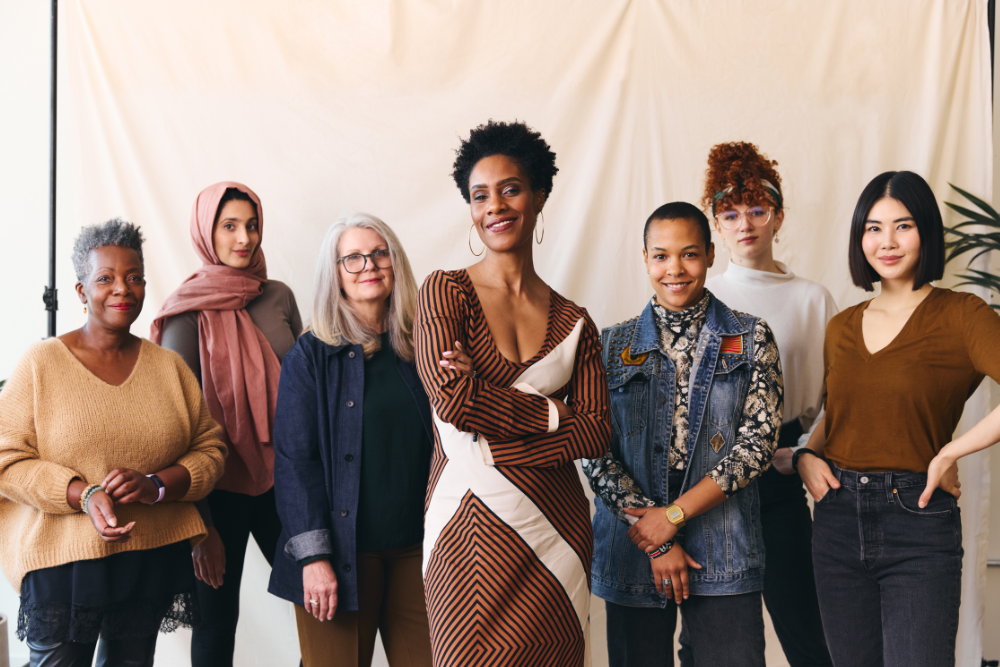
GOAL 5: Gender Equality
Promote gender equity and empowering women of all ages. The U.N. notes that it would take 40 years, at the current pace, for women and men to be represented equally in political leadership, for instance.
How Promo Can Help:
Annual observances like International Women’s Day in March are an opportunity to raise awareness about progress toward equality. A thoughtfully selected promo item can help enhance educational campaigns.
The suppliers said their products can make an easy target for headline-grabbing criticism, while officials ignore the use of other plastic products that are in widespread circulation in the consumer and commercial marketplaces.
“Just walk down any grocery store aisle and count the number of plastic packaged goods,” said Wolters. “Yet the state virtue signal is to ban healthy, clean bottled water. I hope the virtue-signal banning doesn’t catch on. It’s not the solution. Recycling is.”
The Massachusetts ban, and other restrictions like that at LAX and in Concord, fails to take into account that the problem is not single-use plastic bottles themselves, but rather inadequate recycling, the supplier executives asserted.
“We sell a product that is 100% recyclable,” Wolters said. “My question is why doesn’t the country or the state start to take recycling more seriously? That’s the real answer.”
“Recycling is the key,” Sorokwasz said. “Build recycling centers and enforce recycling. Be like Europe. They have four trash receptacles: trash, compost, plastic and glass. You get fined if you do not use them correctly.”
Cost is one reason recycling isn’t pushed more, Sorokwasz added. “The cost of new plastic is so cheap, that handling and recycling plastic would cost more than virgin plastic,” he said.
IndustryWeek reported in late 2022 that a lack of infrastructure for recycling quality materials and “unattractive” economics to stimulate demand and supply to solve that lack of infrastructure are problems, but noted that the economic case for recycled plastics was starting to improve.
Jan Dell, a chemical engineer who vice-chaired a federal climate committee in the Obama administration, estimates that the recycling industry has the capacity to “process about 21% of the plastic used in water and soft drink bottles, 10% of milk jugs and juice bottles, less than 5% of grocery bags and shrink wrap, less than 2% of ice-cream tubs and coffee pods, and less than 1% of plastic cutlery, coffee lids and DVD cases,” The Hill reported.

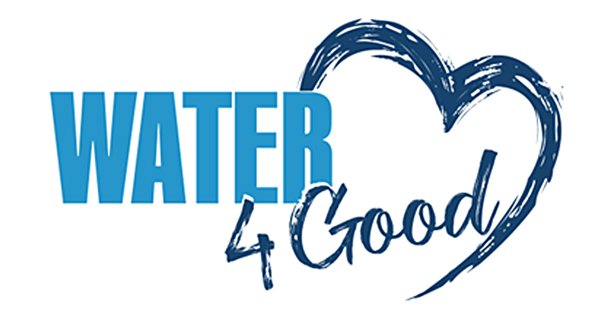
GOAL 6: Clean Water and Sanitation
Everyone deserves access to clean water and proper sanitation. According to the U.N., more than 733 million people live in countries with high and critical levels of water stress.
How Promo Can Help:
Support fundraising efforts to increase access to clean drinking water. Industry group PromoCares is in the midst of a Water4Good campaign to build water towers for communities in Mexico.

Plastics to New Products
For sure, in the promo market, some suppliers have been doing their part to turn recycled plastic into useful new products.
Stormtech (asi/89869), a Top 40 supplier, last year launched Pure Earth, a collection that features apparel manufactured from either polyester made from recycled plastic and/or cotton certified by the Better Cotton Initiative (BCI).
Just this week, BELLA+CANVAS (asi/39590) debuted a new T-shirt made from 100% recycled materials. The EcoMax tee (3001ECO) is produced by combining pre-consumer scraps of Airlume combed and ringspun cotton from its Los Angeles cutting facility with dope-dyed polyester from recycled post-consumer PET plastic bottles. Meanwhile, &Collar (asi/45639) sells a dress shirt made from recycled plastics.
It’s not just apparel, of course.
In July, Top 40 supplier Koozie Group (asi/40480) announced a new partnership with GoGo by Shed Rain. All 12 GoGo umbrellas offered by Koozie Group will be made from recycled polyethylene terephthalate (rPET), with the equivalent of six to eight water bottles’ worth of material used depending on the umbrella arc size. “The GoGo brand shares many of our core values, including offering products with sustainability in mind,” said Koozie Group CEO Pierre Montaubin.
This list of examples could go on.
Such efforts would do well to multiply, sustainability advocates say, noting that it doesn’t appear single-use plastic bottles are going anywhere, anytime soon – even if restrictions are cropping up in places. Consider: Last year, more than 600 billion plastic water bottles were sold around the world – a rate of nearly 1 million bottles per minute. Global sales of bottled water are expected to nearly double by 2030.

GOAL 7: Clean Energy
Create access to reliable, affordable and renewable modern energy for all people. Renewable energy use has been growing, but still represents only about 17.7% of total consumption, according to the U.N.
How Promo Can Help:
Make a plan to reduce your carbon footprint – and then follow through. Top 40 supplier Koozie Group (asi/40480) pledged earlier this year, for instance, that it will be carbon-neutral by 2024.
The Rise of Reusable Drinkware
Concern over the volumes and growth of single-use plastic bottles have been one factor that’s helped propel a significant rise in sales of branded reusable drinkware in the promo market. Companies across industries have placed a greater emphasis on operating in a socially responsible manner, and one way they’ve increasingly sought to demonstrate this through merch is by providing target audiences with bottles that can be filled and reused time and again.
Numbers back up the narrative.
To wit, sales of branded reusable drinkware have soared, becoming the industry’s hottest growth category. Consider that, in 2008, drinkware was the eighth-most popular product category at 5.1%. Today at 9.9%, it’s second – a change that means drinkware nearly doubled its share of promo sales during that timeframe, according to Counselor’s 2023 State of the Industry report.
A recent sustainability initiative from Zing Manufacturing (asi/99025) highlights the ways in which reusable drinkware and single-use plastic bottles have come to be contrasted in the perception of some promo pros, end-buyers and consumers at large. Through its 100 Million Bottle Initiative, the Phoenix-based supplier is donating 1% of reusable drinkware sales from its S’well, BUILT and Zing lines to Oceana, an international conservation agency focused on the world’s oceans.
The goal is to prevent 100 million plastic bottles from harming marine life and ecosystems, Zing has said. It’s been about a month since the project launched, and so far, nearly 4 million single-use plastic water bottles have been diverted from ending up in oceans, Zing said. One reusable bottle has the potential to replace up to 192 single-use plastic bottles each year, according to statistics Zing cited.
“While we celebrate this milestone, we are even more energized to redouble our efforts and drive meaningful change for our oceans and the planet,” said Zing Vice President Rob Watson. “Our progress to date demonstrates what can be achieved when individuals and organizations come together with a shared purpose.”
Sustainability advocates in promo have noted that for reusable drinkware to reach or surpass its environmental payback period – that is, the number of times a consumer must reuse a product for its environmental impact to be equivalent to the impact of the corresponding single-use item – products must be high-quality and covetable so that end-users will want to keep refilling them.


GOAL 8: Decent Work and Economic Growth
Promote inclusive and renewable economic growth, along with constructive employment for all people.
How Promo Can Help:
Seek out products that are certified by fair-trade organizations, and ensure that each part of your supply chain follows Fair Labor Association guidelines.
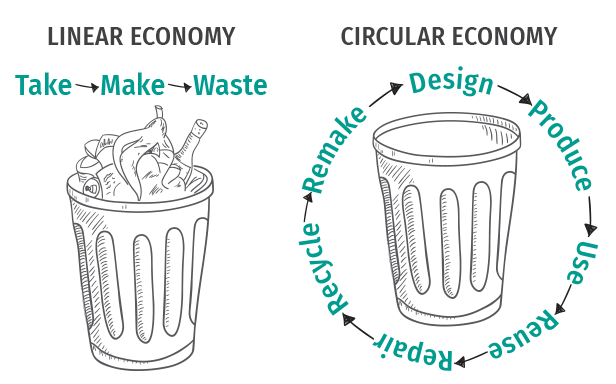
GOAL 9: Industry, Innovation and Infrastructure
Promote resilient infrastructure along with sustainable and inclusive industrialization and the ability to foster innovation.
How Promo Can Help:
Support innovative products made from recycled or upcycled materials. Consider how developing a circular economic model will help foster sustainable growth.
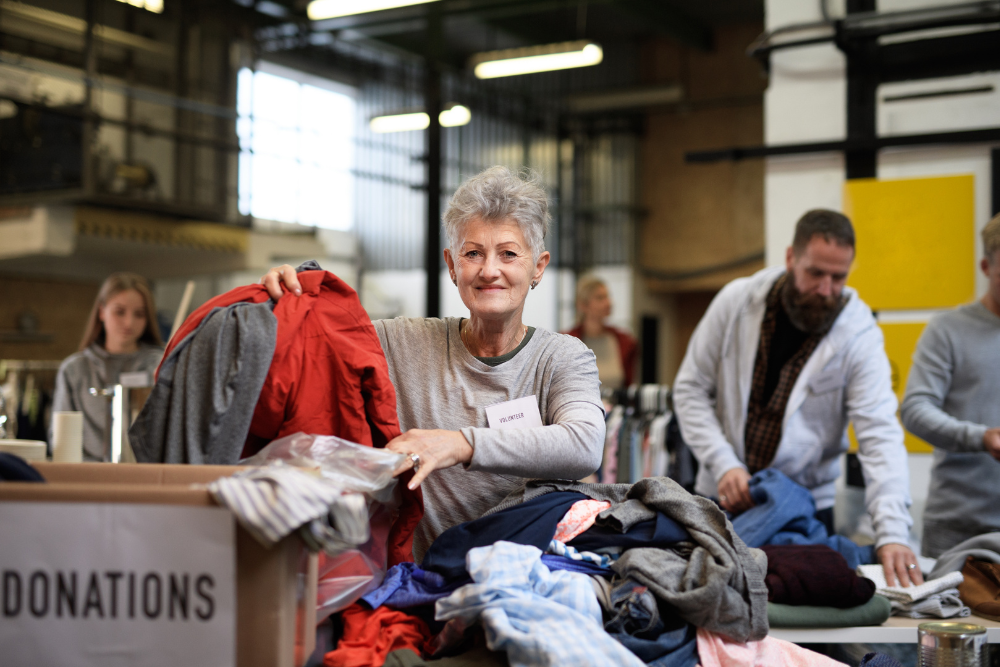
GOAL 10: Reduced Inequalities
This goal seeks to minimize inequalities globally. The U.N. notes that between 2015 and 2021, the number of refugees outside their own country increased by 44%.
How Promo Can Help:
Consider donating misprinted or outdated apparel and other promotional products to charities that provide aid to refugees around the world.
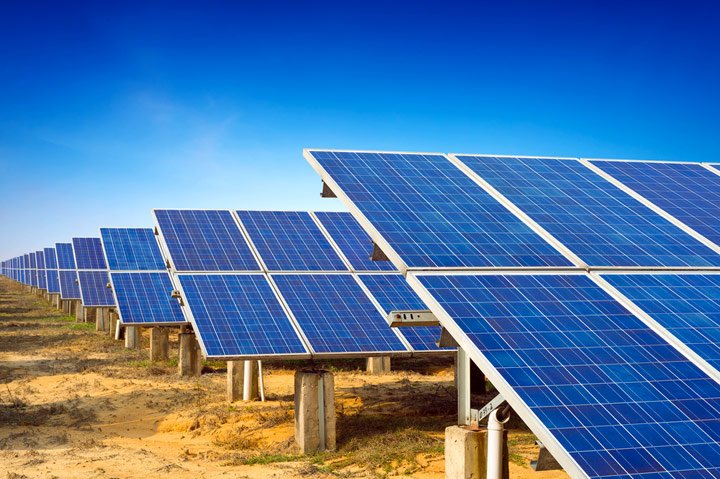
GOAL 11: Sustainable Communities
Develop cities and communities that are safe, renewable and inclusive for all.
How Promo Can Help:
Install solar panels on your facility to help combat climate change and provide a sustainable workplace for employees. Top 40 distributor 4imprint (asi/197045) announced plans to install a solar array at its Oshkosh, WI, distribution center last year, joining a number of other promo companies who’ve also invested in renewable energy.

GOAL 12: Responsible Consumption and Production
Secure sustainable production globally. Reliance on natural resources rose 65% globally from 2000 to 2019, according to the U.N.
How Promo Can Help:
Implement recycling programs at your facility, and pitch promo made from recycled materials. Follow the example of companies like Orbus Exhibit & Display (asi/75209), which has recycled an average of 75% of its total waste each year for the past decade, diverting about 10 million pounds of trash from landfills.

GOAL 13: Climate Action
Take realistic and timely action to combat climate change globally. The U.N. calls climate change “humanity’s ‘code red’ warning,” noting that the “window to avoid climate catastrophe is closing rapidly.”
How Promo Can Help:
Ask suppliers and other parts of your value chain to share their progress on sustainability. Gildan (asi/56842), for example, has started publishing stand-alone climate change disclosure reports as a part of its overall ESG strategy.
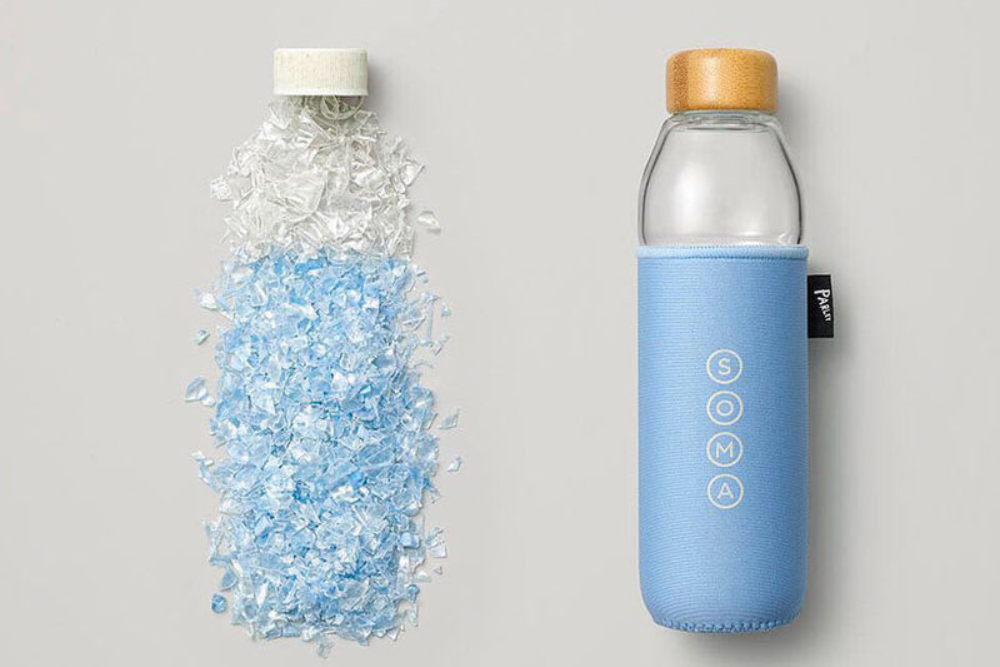
GOAL 14: Life Below Water
Conserve the oceans, along with other bodies of water, for sustainable development. More than 17 million metric tons of plastic entered the ocean in 2021 – a figure that’s projected to double or triple by 2040 under current conditions, according to the U.N.
How Promo Can Help:
Source products that are created from plastic salvaged from the ocean or other waterways. Top 40 supplier Gemline (asi/56070), for example, offers Out of the Ocean brand bags, made from reclaimed ocean plastic.

GOAL 15: Life on Land
Provide protection and restoration of all ecosystems. Reserve land, combat deforestation and stop biodiversity loss.
How Promo Can Help:
Host a clean-up day at a local park or community center. For example, Top 40 supplier Charles River Apparel (asi/44620) recently hosted a cleanup of the Charles River.

GOAL 16: Peace, Justice and Strong Institutions
Provide peaceful societies with renewable development and access to justice for all. Build accountable institutions at all levels for all people.
How Promo Can Help:
Partner with certified B Corps and other organizations that measure their impact and focus on the triple bottom line of people, planet and profit. Consider undergoing an EcoVadis or B Corp assessment at your own company.

GOAL 17: Partnerships for Goals
Strengthen the means of implementation and revitalize the U.N. Global Partnership for Sustainable Development. Among the targets for this goal is to mobilize financial resources for developing countries.
How Promo Can Help:
Partner with companies that have put a focus on meeting all 17 SDGs in their business operations. Include your progress toward achieving each goal in your own annual corporate social responsibility (CSR) report.


